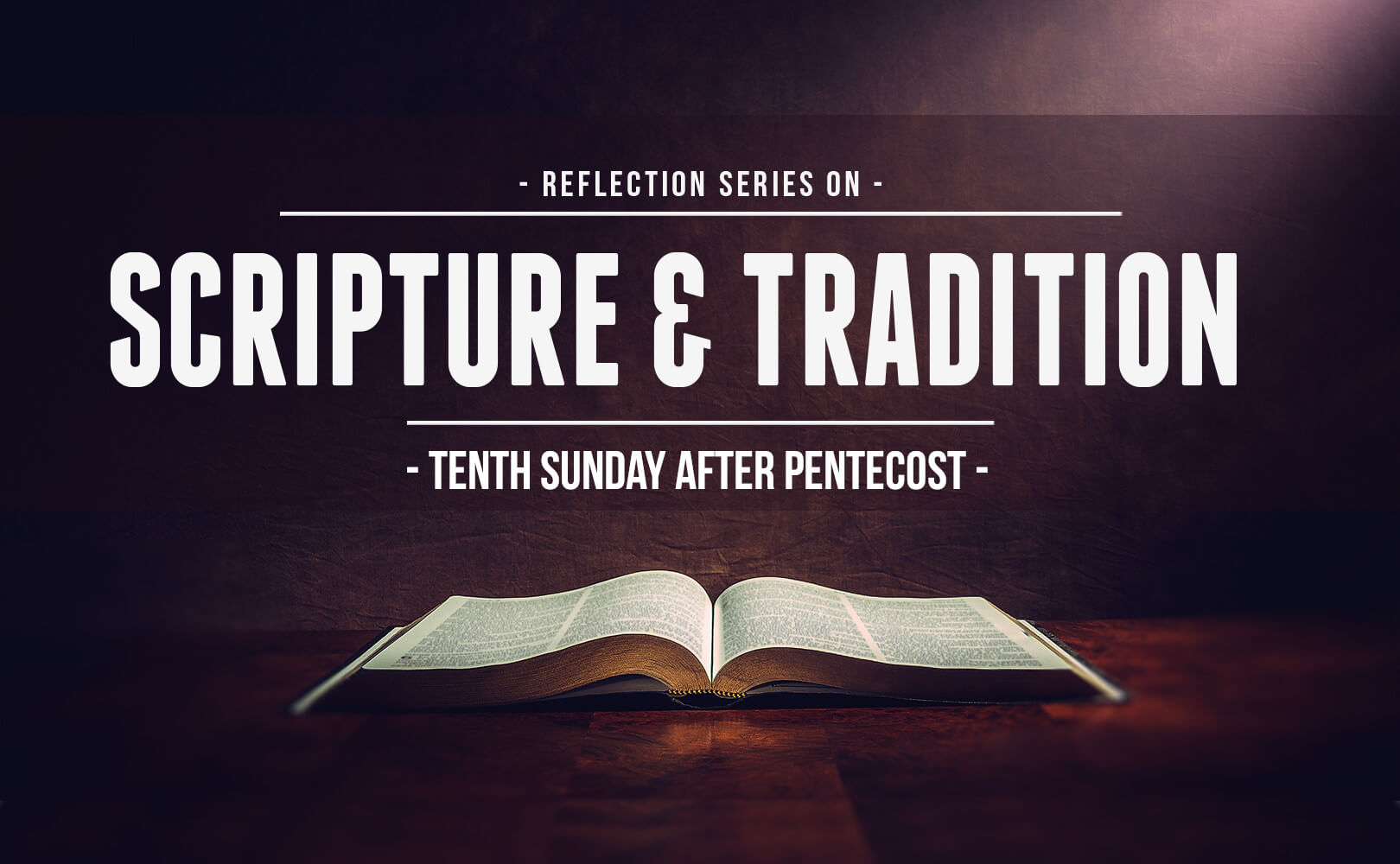Epistle: 1 Corinthians 12:2-11
Gospel: Luke 18:9-14
O God who dost manifest Thine almighty power most chiefly in sparing and showing mercy: multiply upon us Thy mercy: that as we hasten towards Thy promises, Thou may make us partakers of the heavenly treasures.
– From the Collect for the Tenth Sunday after Pentecost
Sunday’s readings point to our radical dependence on God and our need for humility to accept that dependence. We cannot exist without God, and, furthermore, we cannot do any good in this life without His assistance.
Sunday’s Epistle emphasizes the role of the Holy Spirit in the Christian life. St. Paul tells us that “no man can say, The Lord Jesus, but by the Holy Spirit” (1 Cor 12:3). At first this might seem to contradict the words of Jesus we heard on the Seventh Sunday after Pentecost, when Our Lord said, “Not every one that saith to me, Lord, Lord, shall enter into the kingdom of heaven” (Mt 7:21). Yet the two passages complement each other. Jesus is noting that simply calling him “Lord” does not mean you are his disciple, you must also do the will of his Father in heaven (cf. Mt 7:21). St. Paul is emphasizing that doing Christ’s will—making him Lord of your life—requires the help of the Holy Spirit.
Further, St. Paul writes that when one is docile to the Holy Spirit he is given wisdom, knowledge…even the ability to perform miracles, as we see in the lives of the saints who have gone before us. But as St. John Chrysostom notes, “Paul calls the gifts spiritual because they are the work of the Spirit alone, owing nothing to human initiative” (Homilies on the Epistles of Paul to the Corinthians 29.2). Without the Holy Spirit, we are helpless.
In Sunday’s Gospel, however, Jesus directs our attention to someone who thinks he can be holy without God’s help: a Pharisee. By all appearances, this Pharisee is the definition of holy: he is a leading member of the religious community, he fasts, he tithes generously. Yet Our Lord condemns him. Why? Because of pride. According to St. Basil the Great, “The stern Pharisee, who in his overweening pride not only boasted of himself but also discredited the publican in the presence of God, made his justice void by being guilty of pride” (On Humility). The Pharisee thought that he was holy due to his own strength and power. Yet the publican—who the religious world would think dirty and sinful—knows he is nothing without God and simply cries out, “O God, be merciful to me a sinner!” (Lk 18:13). There is no more powerful prayer.
For those of us who take seriously our practice of the Catholic Faith, especially traditional Catholics who embrace all the precepts and teachings of the Church, we face a real danger of falling into the trap of the Pharisee. Our practice of the Faith is 100% dependent upon God, and the moment we look with pride at our accomplishments—and in contempt at those who do not outwardly practice the Faith as we do—then we are no better than the Pharisee, believing we have accomplished something under our own power, rather than by the grace of the Holy Spirit.


